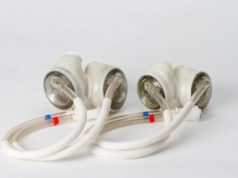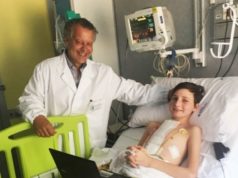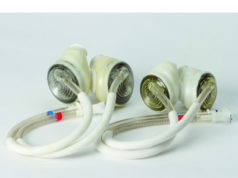
The Texas Heart Institute and BiVACOR, a clinical-stage medical device company, announced today the successful first-in-human implantation of the BiVACOR Total Artificial Heart as part of the US Food and Drug Administration (FDA) early feasibility study (EFS).
BiVACOR’s total artificial heart is a titanium-constructed biventricular rotary blood pump with a single moving part that utilizes a magnetically levitated rotor that pumps the blood and replaces both ventricles of a failing heart.
The first-in-human clinical study aims to evaluate the safety and performance of the device as a bridge-to-transplant solution for patients with severe biventricular heart failure or univentricular heart failure in which left ventricular assist device support is not recommended.
Following this first implantation completed at Baylor St Luke’s Medical Center (Houston, USA) in the Texas Medical Center, four additional patients are to be enrolled in the study.
“The Texas Heart Institute is enthused about the groundbreaking first implantation of BiVACOR’s total artificial heart. With heart failure remaining a leading cause of mortality globally, the BiVACOR total artificial heart offers a beacon of hope for countless patients awaiting a heart transplant,” said Joseph Rogers, president and chief executive officer of The Texas Heart Institute and national principal investigator on the research. “We are proud to be at the forefront of this medical breakthrough, working alongside the dedicated teams at BiVACOR, Baylor College of Medicine, and Baylor St Luke’s Medical Center to transform the future of heart failure therapy for this vulnerable population.”
Daniel Timms, founder and chief technology officer of BiVACOR, said: “I’m incredibly proud to witness the successful first-in-human implant of our total artificial heart. This achievement would not have been possible without the courage of our first patient and their family, the dedication of our team, and our expert collaborators at the Texas Heart Institute. Utilising advanced MAGLEV technology, our total artificial heart brings us one step closer to providing a desperately needed option for people with end-stage heart failure who require support while waiting for a heart transplant. I look forward to continuing the next phase of our clinical trial.”













